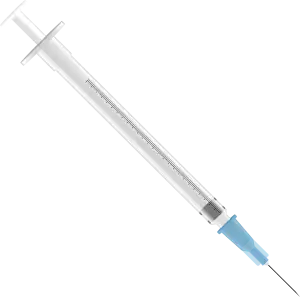Protein Power: Unveiling the Optimal Amount for Muscle Building

- Importance of Protein for Muscle Growth
- Recommended Daily Protein Intake for Muscle Building
- Factors Affecting Protein Requirements for Muscle Building
- High-Quality Protein Sources for Muscle Growth
- Timing and Distribution of Protein Intake for Optimal Muscle Building
- Potential Risks of Excessive Protein Consumption for Muscle Building
Protein is an essential macronutrient that plays a crucial role in muscle building. Whether you're a fitness enthusiast or an athlete, understanding the relationship between protein and muscle growth is key to achieving your goals. When it comes to building lean muscle mass, protein acts as the building blocks for repairing and rebuilding damaged muscle tissues. In this article, we will delve into the importance of protein for muscle growth, recommended daily protein intake, factors affecting protein requirements, high-quality protein sources, timing and distribution of protein intake, as well as potential risks of excessive protein consumption. By finding the right balance of protein in your diet, you can optimize your muscle-building journey and unlock your full potential.
Importance of Protein for Muscle Growth
Protein plays a crucial role in muscle growth and development. When we engage in activities like weightlifting or resistance training, our muscles undergo microscopic damage. Protein helps repair and rebuild these damaged muscle fibers, leading to increased muscle mass.
Protein is made up of amino acids, which are the building blocks of muscles. Consuming an adequate amount of protein provides the body with the necessary amino acids to support muscle repair and growth. Without enough protein, our bodies may struggle to recover from workouts and build new muscle tissue.
Additionally, protein is essential for maintaining a positive nitrogen balance in the body. Nitrogen is a key component of amino acids, and a positive nitrogen balance indicates that the body is synthesizing more protein than it is breaking down. This state promotes muscle growth and prevents muscle breakdown.
Incorporating sufficient protein into your diet is especially important for individuals who regularly engage in strength training or intense physical activity. It not only supports muscle growth but also aids in post-workout recovery, reducing soreness and enhancing overall performance.
To maximize the benefits of protein for muscle growth, it's crucial to consume high-quality sources such as lean meats, poultry, fish, eggs, dairy products, legumes, and plant-based proteins like tofu and quinoa. These sources provide all essential amino acids required for optimal muscle development.
In conclusion, protein is vital for promoting muscle growth by repairing damaged tissues and supporting the synthesis of new proteins. Including an adequate amount of high-quality protein in your diet can help you achieve your fitness goals more effectively while ensuring proper recovery and overall muscular health.
Recommended Daily Protein Intake for Muscle Building
To maximize muscle growth, it is crucial to consume an adequate amount of protein daily. The recommended protein intake for muscle building varies depending on factors such as age, gender, weight, and activity level.
For most individuals engaging in regular resistance training or intense physical activity, a general guideline is to consume around 1.2-2.0 grams of protein per kilogram of body weight per day. This means that a person weighing 70 kilograms would aim for a daily protein intake of approximately 84-140 grams.
However, it's important to note that these are just general recommendations and individual needs may vary. Some experts suggest that athletes or those engaged in intense training may require even higher amounts of protein, ranging from 2.3-3.1 grams per kilogram of body weight.
It's also worth mentioning that the timing and distribution of protein intake throughout the day can impact muscle building. Consuming an adequate amount of protein at each meal, rather than relying solely on one large serving, has been shown to be more effective in promoting muscle synthesis.
In conclusion, to optimize muscle growth, it is recommended to consume an appropriate amount of protein based on individual factors such as age, gender, weight, and activity level. Consulting with a healthcare professional or registered dietitian can help determine the ideal daily protein intake for your specific goals and needs.
Factors Affecting Protein Requirements for Muscle Building
The amount of protein needed for muscle building varies depending on several factors. Firstly, the individual's body weight and composition play a significant role. Those with more muscle mass generally require higher protein intake to support muscle growth and repair.
Secondly, the level of physical activity is crucial in determining protein requirements. Athletes and individuals engaging in intense workouts or resistance training may need more protein to promote muscle recovery and development.
Furthermore, age is an important factor to consider. Older adults may have reduced protein synthesis rates, making it necessary to increase their protein intake to maintain muscle mass.
Additionally, the timing of protein consumption can impact muscle building. Consuming protein before or after exercise has been shown to enhance muscle protein synthesis and improve recovery.
Lastly, genetics can also influence an individual's response to dietary protein. Some people may require higher amounts of protein due to genetic variations that affect their ability to utilize dietary amino acids effectively.
Considering these factors when determining protein requirements for muscle building is essential in optimizing results and achieving desired gains.
High-Quality Protein Sources for Muscle Growth
When it comes to muscle growth, not all protein sources are created equal. To maximize your gains, it's important to focus on consuming high-quality protein. These sources provide all the essential amino acids needed for muscle building.
Lean meats such as chicken, turkey, and beef are excellent choices as they are rich in protein and low in fat. Fish like salmon and tuna are also great options due to their high protein content and omega-3 fatty acids, which have been shown to support muscle recovery.
For those following a vegetarian or vegan diet, plant-based proteins can still be highly effective. Foods like tofu, tempeh, lentils, chickpeas, and quinoa are all great sources of protein. Additionally, dairy products such as milk, Greek yogurt, and cottage cheese are rich in both protein and calcium.
Eggs are another fantastic source of high-quality protein. They contain all nine essential amino acids and are easily digestible by the body. Including eggs in your diet can provide a significant boost to your muscle-building efforts.
Protein supplements such as whey protein powder or plant-based alternatives like pea or soy protein can also be convenient options for meeting your daily protein needs. These powders can be easily mixed into shakes or added to recipes to increase your overall protein intake.
Remember that variety is key when it comes to choosing high-quality protein sources for muscle growth. By incorporating a mix of animal-based and plant-based proteins into your diet, you can ensure that you're getting a wide range of essential nutrients necessary for optimal muscle building.
Timing and Distribution of Protein Intake for Optimal Muscle Building
In addition to the amount of protein consumed, the timing and distribution of protein intake also play a crucial role in maximizing muscle building. Research suggests that spreading protein intake evenly throughout the day is more beneficial than consuming large amounts in one sitting.
To optimize muscle protein synthesis, it is recommended to consume 20-30 grams of high-quality protein every 3-4 hours. This ensures a steady supply of amino acids for muscle repair and growth. For example, having a protein-rich breakfast, followed by a mid-morning snack, lunch, afternoon snack, dinner, and possibly an evening snack can help maintain an adequate amino acid pool.
Furthermore, consuming protein before and after exercise has shown promising results in promoting muscle recovery and growth. Consuming a source of fast-digesting protein such as whey or lean meats within 30 minutes post-workout can help kickstart the muscle repair process.
It's worth noting that while timing is important, total daily protein intake remains the primary factor for muscle building. Therefore, it's essential to meet your overall daily protein requirements while also considering the timing and distribution to maximize muscle growth potential.
By strategically planning your meals and snacks to include adequate amounts of high-quality protein at regular intervals throughout the day, you can optimize muscle building potential and support your fitness goals effectively.
Potential Risks of Excessive Protein Consumption for Muscle Building
Excessive protein consumption for muscle building can have potential risks. Consuming more protein than your body needs can put a strain on your kidneys and liver, as they are responsible for processing and eliminating excess nitrogen from protein breakdown. This can lead to kidney damage and other health issues in the long run. Additionally, excessive protein intake may displace other important nutrients in your diet, such as carbohydrates and fats, which are also essential for overall health and energy production. It is important to find the right balance of protein intake to support muscle growth without putting unnecessary stress on your body.
In conclusion, finding the right balance of protein for muscle building is essential for optimal results. While protein is crucial for muscle growth, it is important to remember that more is not always better. The recommended daily protein intake for muscle building varies based on factors such as age, weight, and activity level. It is recommended to consume high-quality protein sources such as lean meats, dairy products, and plant-based proteins. Timing and distribution of protein intake throughout the day can also play a role in maximizing muscle growth. However, excessive protein consumption can have potential risks such as kidney damage and nutrient imbalances. Therefore, it is crucial to consult with a healthcare professional or registered dietitian to determine the appropriate amount of protein needed for individual goals and needs. By finding the right balance of protein intake, individuals can support their muscle building efforts while maintaining overall health and well-being.
Published: 05. 01. 2024
Category: Health



